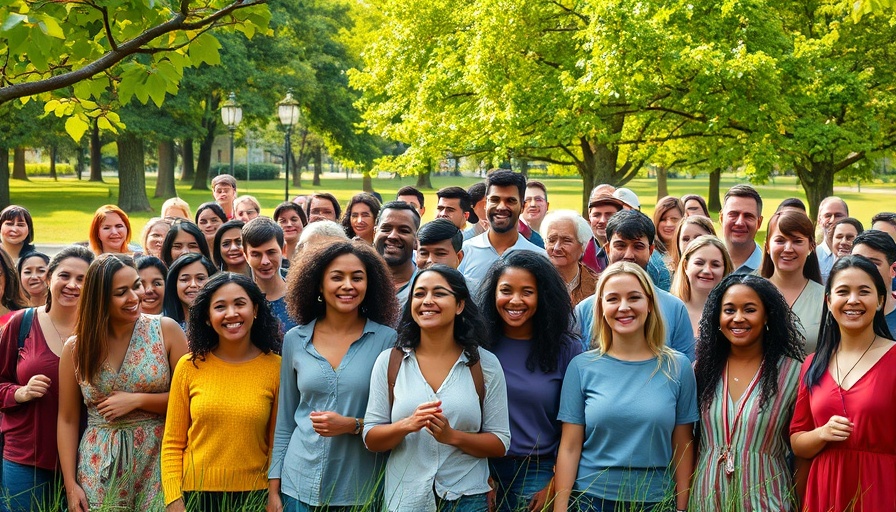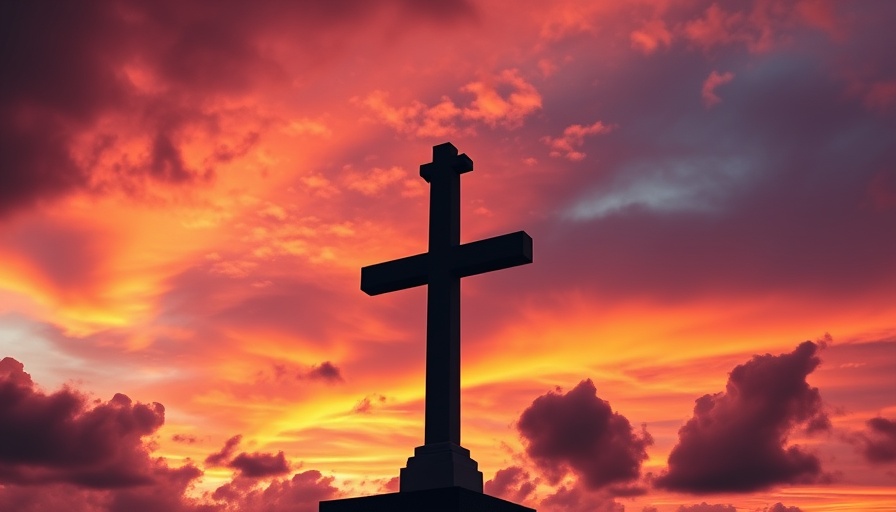
Rooting for Our Future: How Students are Leading the Charge for Sustainability
In a remarkable display of teamwork and environmental responsibility, students from Wahroonga Adventist School recently participated in National Tree Day, a day dedicated to planting trees and promoting conservation efforts. Under the guidance of Leisly White, the head of Science and Environmental Ambassador program, these young advocates learned firsthand the importance of sustainability and conservation of Australia's endemic species. White emphasized that the program not only teaches the principles of environmental stewardship but also provides students with a chance to implement these lessons practically, connecting them deeply with their local ecosystem.
A Growing Eden: The Importance of Native Planting
The significance of planting native trees in the area cannot be overstated. Jayden Streatfeild, the environmental officer for the Seventh-day Adventist Church in the South Pacific, noted that several species planted, such as the blueberry ash and native olive, are critical for enhancing biodiversity within the Blue Gum High Forest—an endangered ecological community native to Sydney. The students efficiently planted around 350 plants, with the majority being different native species intended to promote local wildlife habitats. “Every plant sourced on site has intrinsic value, not only for its beauty but for its role in sustaining the ecosystem,” Streatfeild expressed. This vital initiative aligns perfectly with the global shift towards local biodiversity restoration, reinforcing the connection between area schools and their surrounding nature.
Experiencing Nature: A Lesson Beyond the Classroom
Involvement in such initiatives helps students cultivate a relationship with their surroundings. Elijah White, a student, reflected on how getting hands-on experience in nature fosters a sense of freedom and responsibility toward the environment. His insight sheds light on a significant challenge facing today's youth; without active engagement in conservation efforts, the risk of indifference toward environmental issues looms large. “If we didn’t [take part in the program now], then maybe later in life we wouldn’t really care much about nature, and then everything would just get worse,” said Elijah, summarizing the critical nature of proactive environmental education.
Building Community Through Green Initiatives
This initiative isn't just limited to students; it extends to the wider community. As part of the National Tree Day activities, community members also joined in the planting efforts, fostering a strong bond between neighbors and nurturing the local environment. This inclusivity emphasizes an overarching theme in educational programs today—the importance of community involvement in instilling values of conservation and stewardship.
Conservation Today: A Challenge to Faith and Action
Collectively, the Environmental Ambassadors at Wahroonga Adventist School meet weekly to explore various sustainable initiatives, showcasing an ongoing commitment to environmental advocacy. As communities increasingly grapple with climate change and environmental degradation, these educational programs serve as critical platforms for the next generation to innovate and implement solutions. The message echoed by Mr. Streatfeild remains paramount: “You can’t protect what you’ve never experienced.” This becomes a clarion call for not only schools but all organizations, particularly within faith-based communities, to cultivate an appreciation for nature in their youth to develop conscientious global citizens.
As members of the Seventh-day Adventist faith community, it’s essential to recognize and support grassroots initiatives like these. They not only promote environmental consciousness but align with biblical teachings of stewardship over God’s creation. In light of this, consider how you can contribute to environmental initiatives in your own community. Whether it's through organized events, local tree-planting days, or educational programs, every effort counts.
In conclusion, programs like Wahroonga’s Environmental Ambassadors are crucial not only for individual development but for the broader mission of nurturing and preserving our environment. It is a reminder that our faith calls us to act—not just in belief but through tangible actions that can heal our planet.
 Add Row
Add Row  Add
Add 




Write A Comment